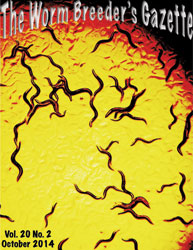It is known that sensory information about relatively constant environmental factors plays important role in formation of relatively constant functional states of human and mammalian nervous system. Therefore strong decrease of total volume of sensory information (sensory deprivation) causes disintegration of normal human and rodents' behavior.
In order to investigate possible influence of total volume of sensory information on the functional state of C. elegans nervous system young adults, grown in Petri dishes with NGM and E. coli OP50 (Brenner, 1974) at 18°C, were incubated individually in 1 ml of liquid medium (NGM without agar, peptone and cholesterol) during 0.5, 1, 2 or 3 hours. In these conditions sensory deprivation of worms is determined by cessation of sensory inputs from conspecific individuals, food and agar plate. Our experiments show that sensory deprivation rapidly (30 min at 18°C) diminished spontaneous swimming rate and then completely stopped worms' swimming (after 90 min incubation). This effect of sensory deprivation is prevented by sensory inputs from conspecific worms, since about 85% of worms maintain spontaneous swimming after 3 hours incubation of 100-200 worms in 3 ml of liquid medium. Temperature increase from 18 to 25°C strongly stabilized worms swimming in conditions of sensory deprivation.
It is known that worms' pretreatment by serotonin (4 or 12 hours) causes adaptation of C. elegans serotonin receptors (Schafer and Kenyon, 1995). This adaptation reveals in the absence of behavior response to exogenous serotonin in fresh medium (Schafer and Kenyon, 1995). In our experiments such C. elegans adaptation to serotonin (12 hours on agar plates containing E. coli OP50 and serotonin 3 mg/ml) diminished effect of sensory deprivation at 18°C, but not at 25°C.
Since exogenous serotonin inhibits C. elegans movement, influence of C. elegans adaptation to serotonin on effect of sensory deprivation displays possible role of endogenous serotonin in this effect.
In whole our data indicate that sensory deprivation can be used for investigation of C. elegans nervous system regulation by continuous and relatively constant sensory inputs, such as social signals and stimulation of inadaptable or partly adaptable thermosensory neurons by constant environmental temperature.
References
Brenner S. (1974). The genetics of Caenorhabditis elegans. Genetics 77, 71–94. 
Schafer WR and Kenyon CJ. (1995). A calcium-channel homologue required for adaptation to dopamine and serotonin in Caenorhabditis elegans. Nature 375, 73–78.





